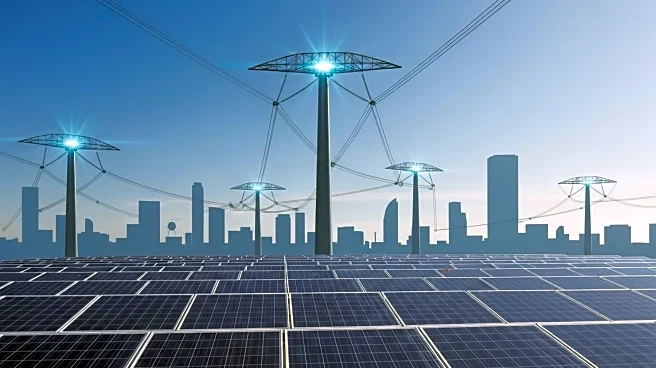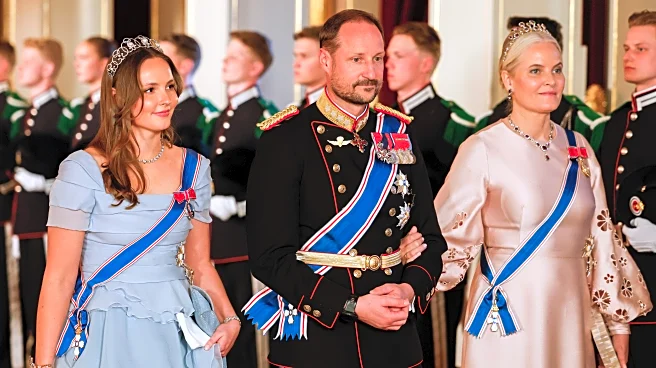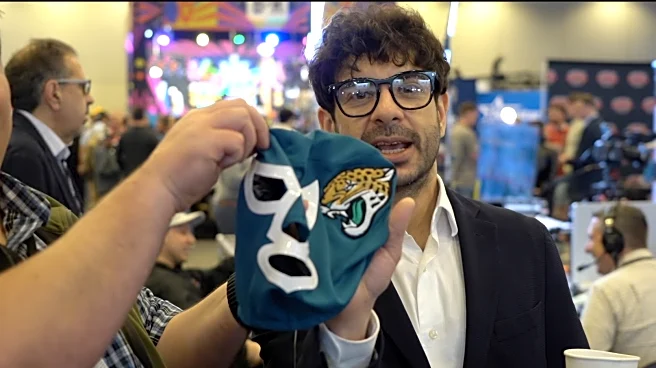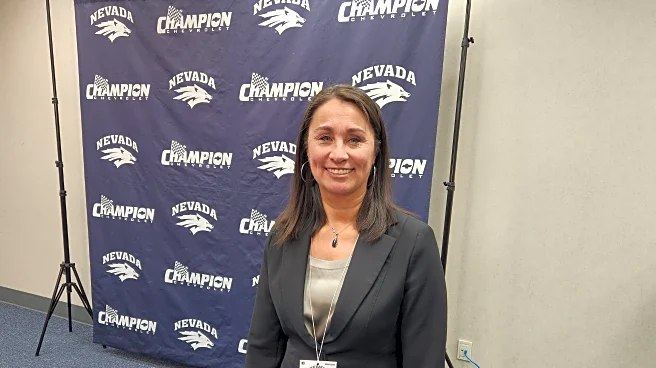What is the story about?
What's Happening?
The SOLA Group has successfully launched Africa's first operational multi-buyer virtual wheeling solar facility, marking a significant advancement in renewable energy procurement on the continent. The 195-megawatt solar photovoltaic facility was completed ahead of schedule and is a breakthrough for large-scale renewable energy projects. This facility offers a flexible multi-buyer platform model, allowing multiple corporates to procure electricity from a single plant with varying contract lengths. Amazon served as the anchor buyer, facilitating the project's financing and execution. Other partners include Sibanye-Stillwater, Sasol, Afrimat, Redefine, Old Mutual, and Vodacom. The project is expected to generate approximately 430 GWh per year, enough to power 150,000 homes, and offset 399,000 tonnes of CO2 annually.
Why It's Important?
This development is crucial for South Africa's transition from carbon-intensive energy sources to renewable energy. The multi-buyer model introduced by SOLA Group could serve as a blueprint for future renewable energy projects, potentially accelerating grid modernization across Africa. The project has already made a significant impact by investing R375 million in local communities and creating 500 jobs. It demonstrates the viability of renewable energy as a reliable, flexible, and scalable solution, which could encourage more businesses to adopt similar models, thereby reducing their carbon footprint and contributing to global sustainability goals.
What's Next?
SOLA Group plans to initiate additional large-scale utility projects in November 2026, incorporating battery energy storage systems to enhance cost efficiency and reliability. This expansion could further solidify SOLA Group's position as a leader in renewable energy procurement in Africa. The project's success may prompt other regions to adopt similar models, potentially leading to increased investment in renewable energy infrastructure and technology.
Beyond the Headlines
The ethical and cultural implications of this project are significant, as it not only contributes to environmental sustainability but also supports local communities through job creation and community programs. The initiative includes a 'Sports Against Crime' program and a sewing and fashion skills training program, which empower local residents and promote social development. This holistic approach to renewable energy projects could inspire similar initiatives worldwide, emphasizing the importance of integrating community benefits into large-scale infrastructure projects.
















